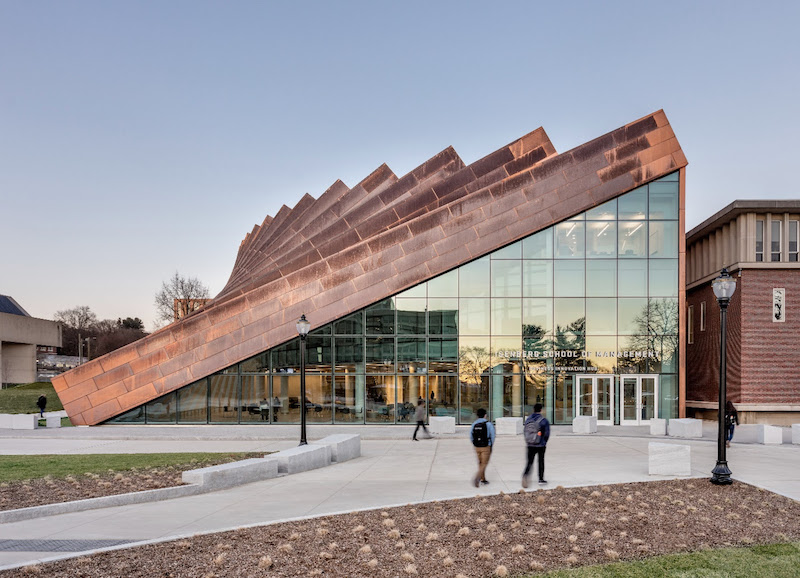Umass Amherst’s new 70,000-sf Business Innovation Hub combines a new expansion with the partial renovation of the Isenberg School of Management. Bjarke Ingels Group (BIG) designed the building with Goody Clancy as the architect of Record.
The building doubles the school’s current space and introduces new facilities for more than 150 staff and 5,000 students in undergraduate, master’s, and PhD programs. The exterior is wrapped in straight, vertical pillars that gradually slope downward, creating a domino effect and a triangular glass entrance. The exterior’s copper cladding will naturally weather from a dark ochre to a patina with long-term exposure to the elements.
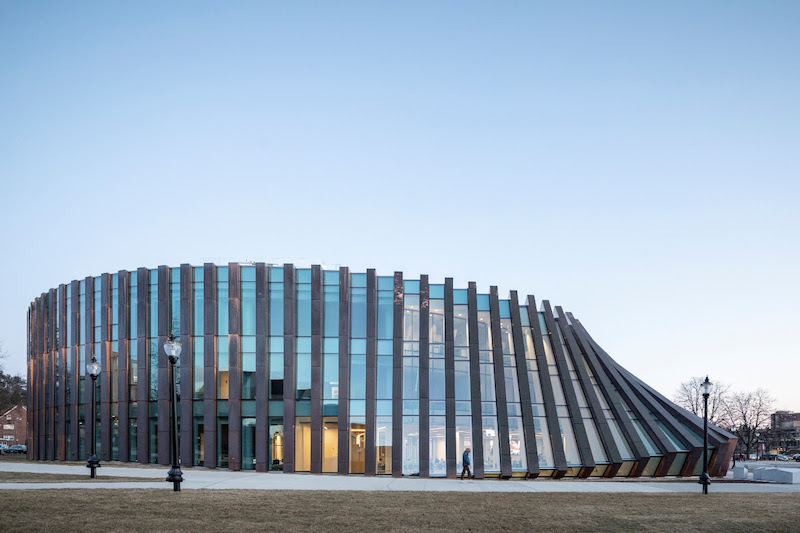 Photo: Laurian Ghinitoiu.
Photo: Laurian Ghinitoiu.
Students and faculty will enter into the naturally-lit, 5,000-sf Learning Commons. This will be a place for learning, networking, and dining. The Learning Commons can also double as a venue for guest speakers, ceremonies, banquets, and career fairs.
See Also: 17-story Data Sciences building to rise on Boston University campus
The Business Innovation Hub extends directly into the existing 1964 building from the north and east sides in a wide circular loop. The loop consolidates Isenberg’s faculty and staff under one roof and creates a circular place of arrival. Various conference rooms and breakout areas are distributed throughout the loop.
 Photo: Laurian Ghinitoiu.
Photo: Laurian Ghinitoiu.
“The new Business Innovation Hub at the Isenberg School of Management is conceived as an extension of both the building and the campus mall,” said Bjarke Ingels, Founder and Creative Director, BIG, in a release. “The linear structure is bent to form a full loop framing an internal courtyard for the life of the students. The façade is pulled away in a domino effect to create a generous invitation from the Haigis Mall to the Learning Commons. The mall and the courtyard – inside and outside form a forum for the students, the faculty and the profession to meet, mingle and mix society and academia.”
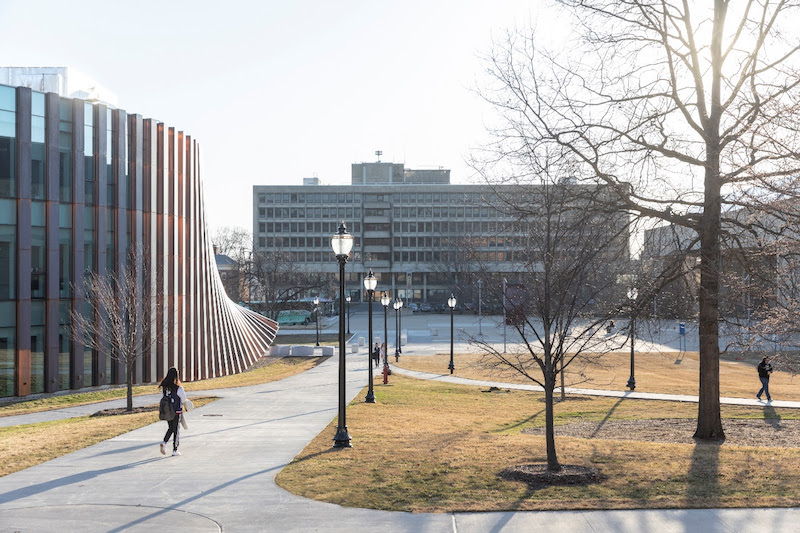 Photo: Laurian Ghinitoiu.
Photo: Laurian Ghinitoiu.
Innovation labs, advising spaces, and faculty offices are located on the second and third floors. Classrooms are equipped with integrated technology for distance learning and can be easily transformed for theater-style lectures or small group work.
The inner spaces of the extension face a circular courtyard that connects back to the campus via two pathways between the original Isenberg building and the Business Innovation Hub. Two bridges above these paths fuse the buildings.
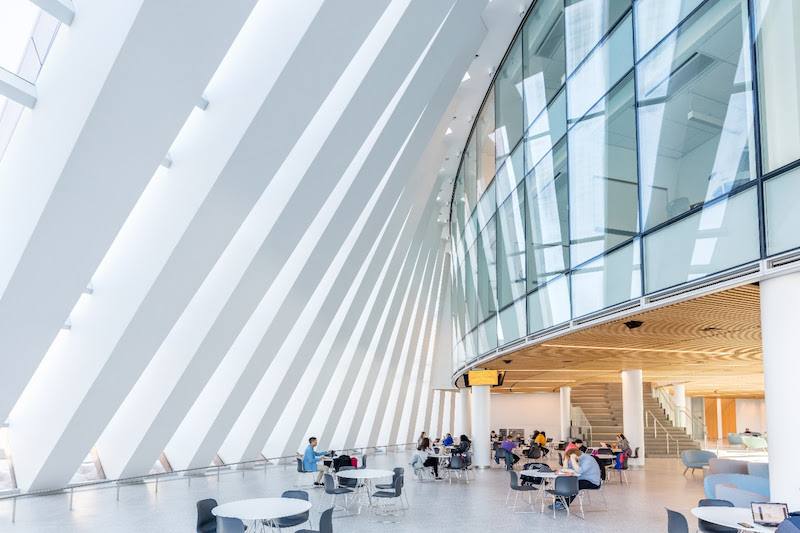 Photo: Max Touhey.
Photo: Max Touhey.
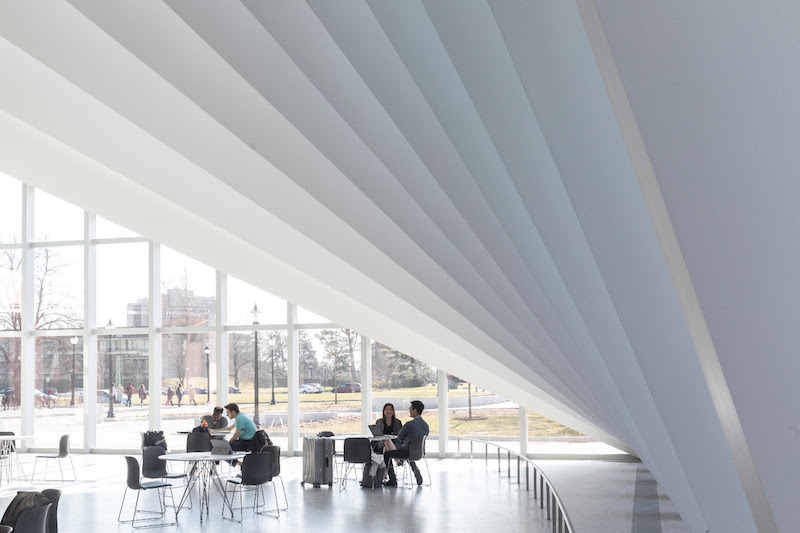 Photo: Laurian Ghinitoiu.
Photo: Laurian Ghinitoiu.
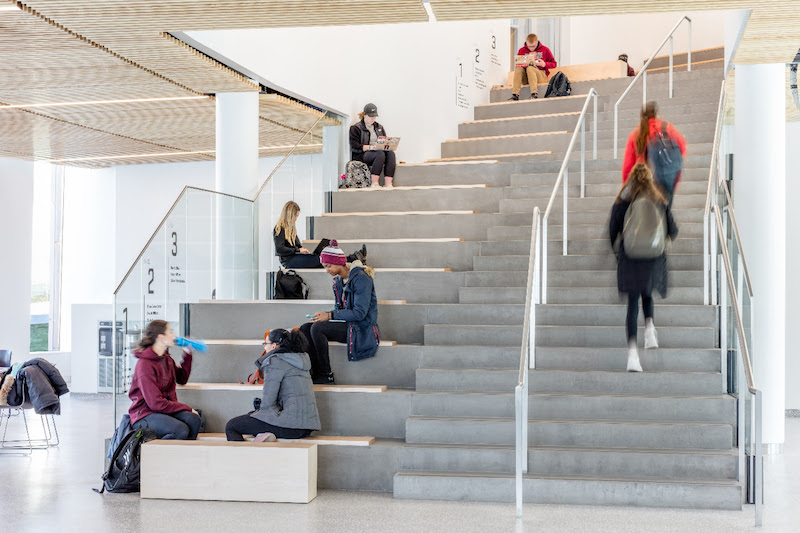 Photo: Max Touhey.
Photo: Max Touhey.
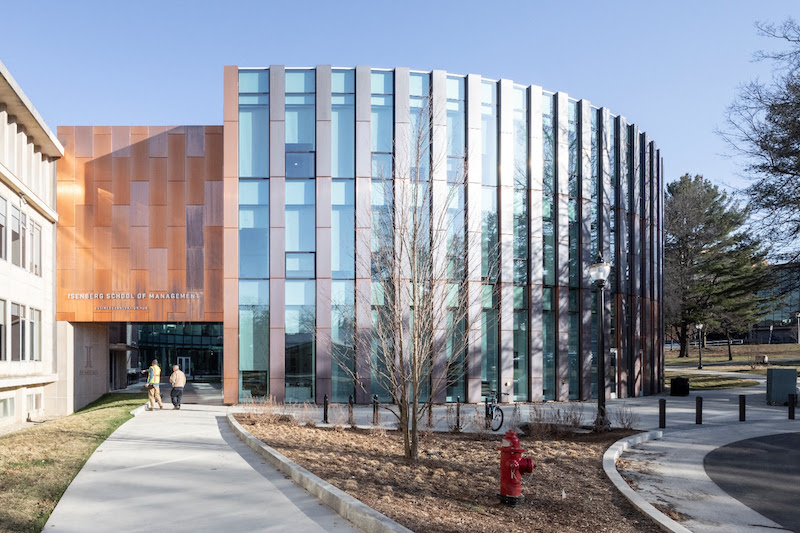 Photo: Laurian Ghinitoiu.
Photo: Laurian Ghinitoiu.
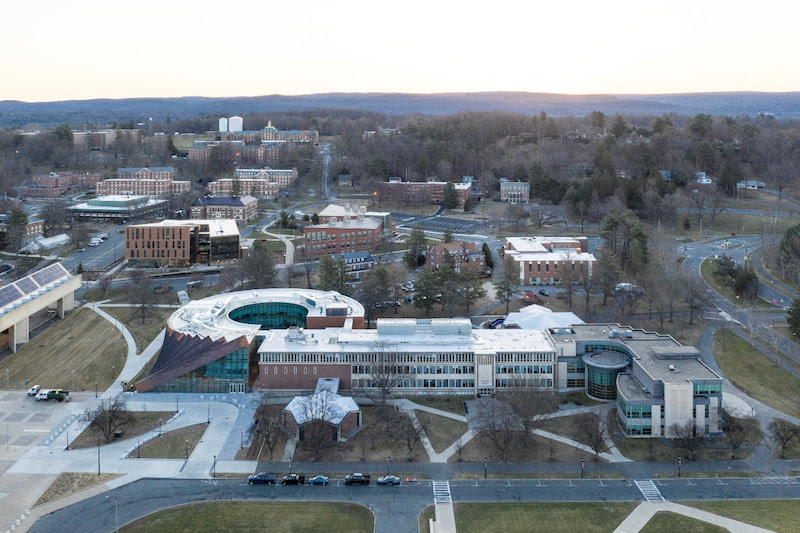 Photo: Laurian Ghinitoiu.
Photo: Laurian Ghinitoiu.
Related Stories
| Aug 11, 2010
Living and Learning Center, Massachusetts College of Pharmacy & Health Sciences
From its humble beginnings as a tiny pharmaceutical college founded by 14 Boston pharmacists, the Massachusetts College of Pharmacy & Health Sciences has grown to become the largest school of its kind in the U.S. For more than 175 years, MCPHS operated solely in Boston, on a quaint, 2,500-student campus in the heart of the city's famed Longwood Medical and Academic Area.
| Aug 11, 2010
Giants 300 University Report
University construction spending is 13% higher than a year ago—mostly for residence halls and infrastructure on public campuses—and is expected to slip less than 5% over the next two years. However, the value of starts dropped about 10% in recent months and will not return to the 2007–08 peak for about two years.
| Aug 11, 2010
Team Tames Impossible Site
Rensselaer Polytechnic Institute, the nation's oldest technology university, has long prided itself on its state-of-the-art design and engineering curriculum. Several years ago, to call attention to its equally estimable media and performing arts programs, RPI commissioned British architect Sir Nicholas Grimshaw to design the Curtis R.
| Aug 11, 2010
Setting the Green Standard For Community Colleges
“Ohlone College Newark Campus Is the Greenest College in the World!” That bold statement was the official tagline of the festivities surrounding the August 2008 grand opening of Ohlone College's LEED Platinum Newark (Calif.) Center for Health Sciences and Technology. The 130,000-sf, $58 million community college facility stacks up against some of the greenest college buildings in th...
| Aug 11, 2010
University of Arizona College of Medicine
The hope was that a complete restoration and modernization would bring life back to three neoclassic beauties that formerly served as Phoenix Union High School—but time had not treated them kindly. Built in 1911, one year before Arizona became the country's 48th state, the historic high school buildings endured nearly a century of wear and tear and suffered major water damage and years of...
| Aug 11, 2010
Cronkite Communication School Speaks to Phoenix Redevelopment
The city of Phoenix has sprawling suburbs, but its outward expansion caused the downtown core to stagnate—a problem not uncommon to other major metropolitan areas. Reviving the city became a hotbed issue for Mayor Phil Gordon, who envisioned a vibrant downtown that offered opportunities for living, working, learning, and playing.


